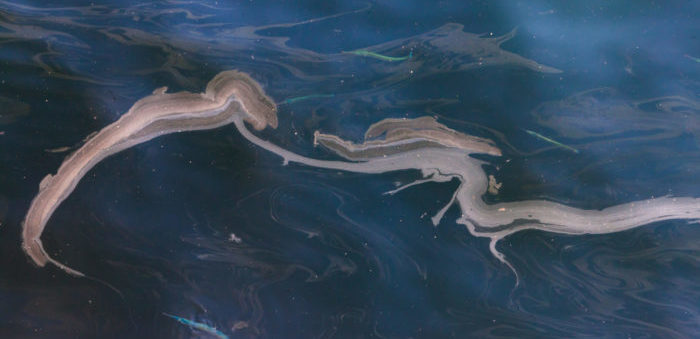The new regulations regarding enhanced supervision and controls on ship pollution came into force on 1st of May 2018 in Tianjin, Northern China’s largest port. This set of regulations apply to pollution caused by vessels, as well as their relevant operations in the territory of Tianjin Port. It also includes navigation, berthing as well as operation.
Huatai Insurance Agency and Consultant Service summarized key points for shipowners to have in mind when entering Tianjin port and practice advice with respect to the new conditions:
1. Using incinerators is prohibited. Penalties: Rectification and fines RMB3,000 to RMB30,000.
- Garbage Record Book should be properly recorded.
- Incinerators and other pollutant equipments are not allowed within Bohai sea areas.
2. Ships that enter Tianjin port for navigating, berthing, anchoring or operating for more than 30 days, or ships that enter dock yards within Tianjin for reparation purpose are required to seal pollutant discharge equipment.
In violation of above, authorities shall order the ship to make rectification and impose a fine from RMB2,000 to RMB20,000.
Ships should notify MSA in advance before unsealing the equipment. In case of emergency, the pollutant discharge equipment can be unsealed. The ship should report the unsealing action to local MSA as early as possible and record the said situation in engine log book properly.
- The sealing period of pollutant discharge equipment starts from the 31st day of ship’s free floating (navigating, mooring, anchoring or operating) within Tianjin port until the date of departure.
- The said 30-day period is calculated cumulatively including the period of ship’s docking.
- The pollutant discharge equipment needs to be sealed including but not limited to the oily mixture discharging valves in engine room, whereas the class approved sewage treatment plant is not within the scope.
- In view that local MSA shall conduct supervision or inspection for unsealing operation, the following points should be noticed:
i) The seal shall be in good order in order to ensure the equipment is unable to be opened and operated.
ii) A notice with description that “by Order of the Master, it was sealed on dd-mm-yyyy. This equipment is prohibited to unseal / open / operate without Masters’ further Order. Dated dd-mm-yyyy” shall be posted on or near the said equipment.
iii) Ships are recommended to take photos which can prove the date and condition of sealing in case of local MSA’s onboard inspection.
iv) A proper record for sealing and unsealing in engine log book and/or other official books is also recommended in case of local MSA’s onboard inspection.
3. Sealing or other protective measures shall be taken by the ships that carry, load or unload dust cargo or cargo that might diffuse toxic and harmful gas, in order to prevent causing atmospheric pollution. Recycling of toxic and harmful gas should be conducted by ship side when carrying or operating cargo with hazardous pollutants. Penalties: Rectification and fines RMB3,000 to RMB30,000.
- While a general cargo ship, bulk carrier, oil tank, gas carrier, etc. is in navigation, her hatch covers or cargo valves should be closed and kept in weather-tight condition.
- When conducting cargo operation at berth, the party responsible for cargo operations is also responsible for conducting protective measures. Ship side shall ensure that all pollution prevention equipment onboard are available at any time.
- Terminal or stevedore company also has their responsibilities for pollution prevention during cargo operation as per this Provision.
- The said measures not only apply to international navigation ships, but also apply to domestic trading ships irrespective of size, type or kind of domestic cargo transportation.
- For the sake of good order, the operation of hatch covers or cargo valves should be recorded in gangway record book, cargo operation book or other official books properly.
4. Cleaning operation should be conducted in advance before deck washing. Under any of the following circumstances, ships are not allowed to wash deck within Tianjin port: deck is contaminated with pollutants; ship is staying or navigating in special protection zones including marine nature reserves, marine special protection areas, agricultural and fishing areas, salt field conservation areas and downstream water areas of the Haihe River.
- Deck washing in other areas of Baohai Sea is also prohibited as the waste water is defined as wet garbage.
- So far as we know, the special protection zones are mainly distributed along the coast line of Tianjin Administrative Area which is not within the regular routes of international navigation ships. For more details, please refers to BA charts and Guide to Port Entry on board if any.
- Ships are suggested to collect cargo residues or other substances on deck or inside cargo holds properly to avoid them falling into Tianjin port through rainwater or deck washing. If washing operation is unavoidable, the waste water and relevant residues should be kept or disposed properly.
5. If ship’s pollutants are received by the receiving entities, a reception agreement shall be signed in advance to clarify the responsibility in respect of safety and pollution prevention.








































![]](https://safety4sea.com/wp-content/uploads/2024/06/shutterstock_2318996555-350x250.jpg)

























